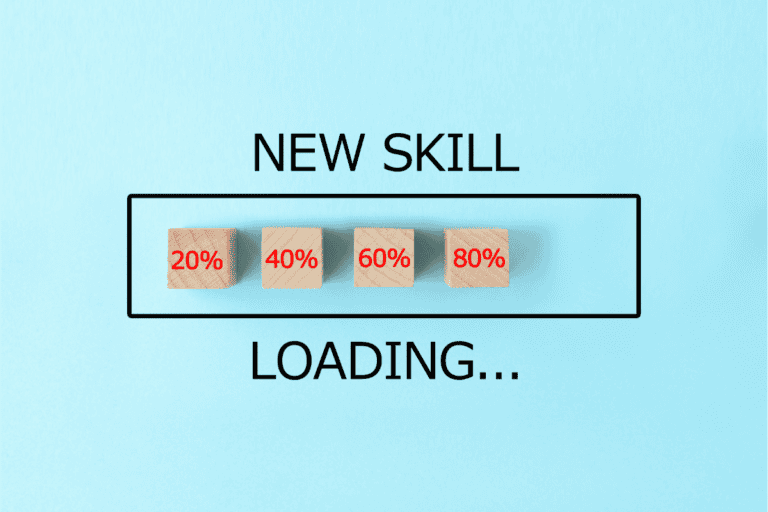What Is Cognitive Flexibility?
Imagine your mind as a river flowing through a diverse landscape, adapting its course to navigate various terrains. Cognitive flexibility is akin to this fluidity, allowing you to adjust your thinking in response to different situations.
As you explore the depths of cognitive flexibility, you'll uncover its significance in problem-solving, decision-making, and daily interactions.
Stay tuned to uncover practical strategies for honing this mental agility and enhancing your adaptability in a dynamic world.
Key Takeaways
- Cognitive flexibility enables adapting thinking to new situations.
- It aids in problem-solving by generating creative and innovative solutions.
- Flexibility enhances decision-making by adjusting strategies effectively.
- Engaging in flexibility training improves mental agility and adaptability.
Understanding Cognitive Flexibility
To grasp the concept of cognitive flexibility, one must investigate into the intricate workings of the mind's adaptability to new information and changing circumstances. Brain plasticity, the brain's ability to reorganize itself by forming new neural connections throughout life, plays a vital role in cognitive flexibility. This adaptability allows individuals to adjust their thinking patterns, behaviors, and responses based on the demands of a situation.
Mental agility is another key component of cognitive flexibility. It involves the capacity to quickly shift focus, generate new ideas, and solve problems creatively. Resilience, the ability to bounce back from setbacks and adapt to adversity, is closely linked to cognitive flexibility. Individuals with high levels of cognitive flexibility are often better equipped to navigate challenges and overcome obstacles.
The Importance of Cognitive Flexibility
Cognitive flexibility is an essential cognitive skill that enables individuals to adapt their thinking and behaviors to changing situations and new information. This ability is critical in various aspects of life as it allows you to navigate through unpredictable circumstances with ease. By being cognitively flexible, you can engage in brain training activities that enhance your mental agility and capacity to learn. Through brain training exercises, you can strengthen your neural connections and improve your cognitive functions.
Adaptive thinking, which is at the core of cognitive flexibility, empowers you to approach challenges from different perspectives and come up with innovative solutions. This skill is invaluable in both professional and personal settings, enabling you to thrive in dynamic environments. Cultivating cognitive flexibility can lead to improved decision-making, better problem-solving skills, and enhanced creativity.
Cognitive Flexibility in Problem-Solving
Enhancing problem-solving skills through cognitive flexibility involves the ability to adapt your thinking to different scenarios and explore varied approaches for effective solutions. Creative thinking plays a critical role in this process, allowing you to generate innovative ideas and consider unconventional solutions. By being open to new perspectives and thinking outside the box, you can approach problems from different angles, leading to novel insights and breakthroughs.
Incorporating adaptive strategies is another key aspect of cognitive flexibility in problem-solving. This involves adjusting your problem-solving approach based on feedback and new information, being willing to modify your strategies as needed. By being agile in your thinking and not rigidly adhering to a single solution path, you can navigate complex problems more effectively and arrive at best outcomes.
Enhancing Decision-Making Through Flexibility
Adapting your decision-making process to embrace flexibility is key to managing complex scenarios effectively and achieving the best outcomes. By improving adaptability, you enhance your ability to adjust strategies swiftly when faced with unexpected challenges. Strategic thinking plays an important role in this process, allowing you to anticipate various outcomes and consider alternative approaches.
Enhancing decision-making through flexibility involves being open to different perspectives and willing to pivot when necessary. This approach enables you to make well-informed decisions based on the current situation rather than sticking rigidly to a predetermined plan. It also allows you to capitalize on emerging opportunities that may not have been initially apparent.
Incorporating flexibility into your decision-making process fosters agility and resilience, essential qualities in today's fast-paced and unpredictable environments. By honing your strategic thinking skills and embracing adaptability, you can navigate complex scenarios with confidence, maximizing your chances of success. Remember, flexibility in decision-making isn't about abandoning your goals but rather about being dynamic and responsive in achieving them.
Practical Tips for Boosting Cognitive Flexibility
To enhance your cognitive flexibility, engage in exercises that challenge your thinking patterns. Incorporate mindfulness practices to improve awareness of your thoughts and emotions. Seek out cognitive challenges that push you out of your comfort zone.
Exercises for Flexibility
Practicing specific mental exercises can greatly enhance your cognitive flexibility, allowing you to adapt more easily to changing situations and think more creatively. Engaging in flexibility training offers numerous benefits, such as improved problem-solving skills, enhanced decision-making abilities, and heightened resilience in the face of challenges. Flexibility workouts yield results like increased innovation, better stress management, and the capacity to pivot strategies swiftly. To illustrate this further, let's examine a comparison between traditional problem-solving approaches and those augmented by cognitive flexibility:
| Traditional Problem-Solving | Problem-Solving with Cognitive Flexibility |
|---|---|
| Linear thinking | Embracing multiple perspectives |
| Fixed solutions | Generating alternative solutions |
| Limited creativity | Encouraging innovative ideas |
| Resistance to change | Readiness to adapt to new information |
Mindfulness Practices
Consider implementing mindfulness practices to enhance your cognitive flexibility and improve your ability to adapt to various situations effectively.
Mindful awareness involves being present in the moment without judgment, which can help you become more attuned to your thoughts and emotions.
By practicing mindfulness regularly, you can enhance your ability to switch between different tasks and perspectives, a key aspect of cognitive flexibility.
Additionally, engaging in mindfulness meditation can serve as a form of flexibility training for your brain, strengthening neural pathways associated with adaptability.
Incorporating mindfulness practices into your daily routine can help you cultivate a more agile and resilient mind, better equipped to navigate the complexities of modern life with ease.
Cognitive Challenges
Enhance your cognitive flexibility by tackling cognitive challenges head-on with practical tips to boost your adaptability and problem-solving skills.
Engaging in adaptability training can greatly improve your cognitive resilience and mental agility. By actively seeking out tasks that require you to shift perspectives, think creatively, and adapt to new situations, you can enhance your ability to navigate complex problems effectively.
Embracing cognitive challenges provides an opportunity to cultivate your flexibility benefits, allowing you to approach obstacles with a more open mindset and innovative solutions.
Incorporating diverse activities that stimulate your cognitive processes and push you out of your comfort zone can further strengthen your cognitive flexibility, ultimately empowering you to face various situations with confidence and agility.
Cognitive Flexibility in Daily Life
Incorporating cognitive flexibility into your daily routines can lead to improved problem-solving skills and adaptability in various situations. This skillset is highly beneficial not only in personal life but also in professional settings. Here's a breakdown of how cognitive flexibility can impact your daily life:
| Flexibility in relationships | Managing change |
|---|---|
| Being open to different perspectives and opinions can help you steer through conflicts and strengthen relationships. | Embracing change and being able to adjust your mindset quickly can reduce stress and enhance your ability to handle unexpected situations. |
| Adaptability at work | Coping with uncertainty |
| Adapting to new tasks and roles efficiently can make you a valuable asset in the workplace. | Having the ability to make decisions in ambiguous situations can help you thrive in uncertain environments and seize opportunities effectively. |
Cultivating Cognitive Flexibility Skills
To develop cognitive flexibility skills effectively, one must engage in regular mental exercises that challenge the brain's ability to adapt and switch between different modes of thinking. Flexibility training involves exposing yourself to diverse tasks that require varying approaches to problem-solving. By practicing cognitive adaptability, you can enhance your capacity to shift perspectives swiftly and respond creatively to new situations.
Engage in activities that stimulate different cognitive functions, such as puzzles, strategic games, or learning a new skill. These exercises force your brain to break free from routine thinking patterns and develop the ability to approach problems from multiple angles. Additionally, seeking out new experiences and environments can broaden your mental horizons, fostering adaptability and openness to change.
Regularly challenging yourself to think outside the box not only enhances cognitive flexibility but also improves overall mental agility. Embrace uncertainty and complexity, as these are opportunities to cultivate resilience and innovation in your thinking processes. Through consistent practice and a willingness to explore unfamiliar territories, you can sharpen your cognitive flexibility skills and adapt more effectively to the ever-changing world around you.
Conclusion
To sum up, cognitive flexibility is like a mental gymnastics routine, where your brain gracefully leaps from one idea to another with ease.
It's the ability to juggle thoughts, adapt to new situations, and bend your mind in different directions.
So, next time you're faced with a challenge, remember to stretch those cognitive muscles and perform some impressive mental acrobatics.
Your brain will thank you for the workout!







